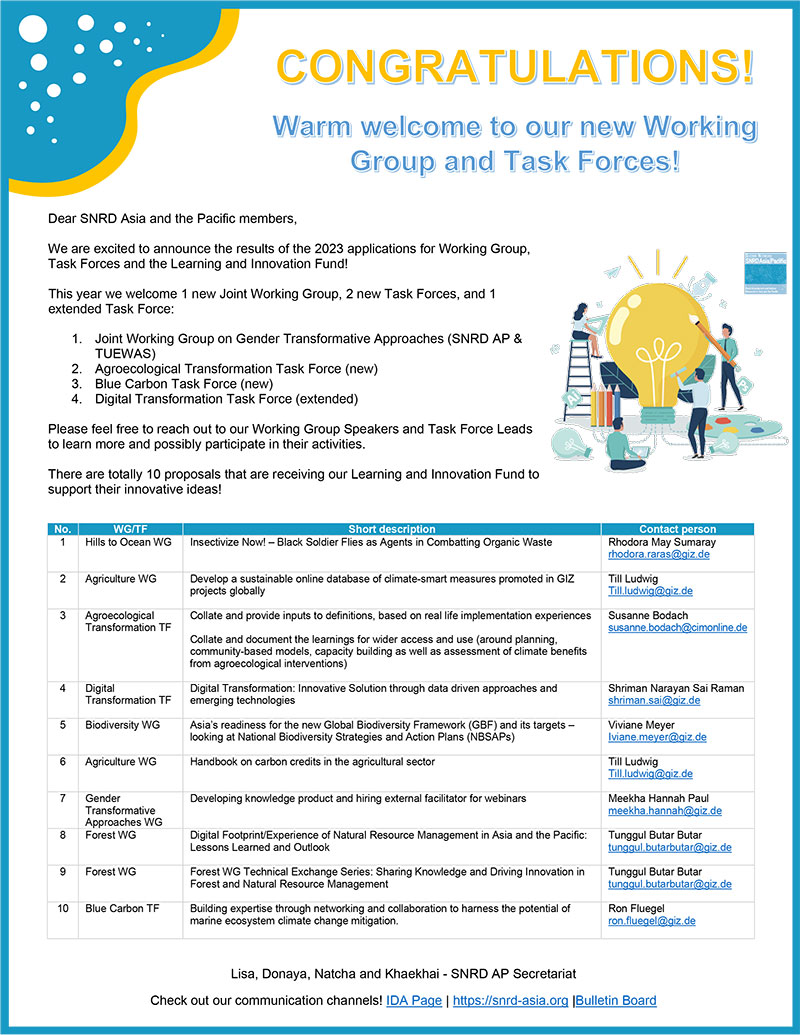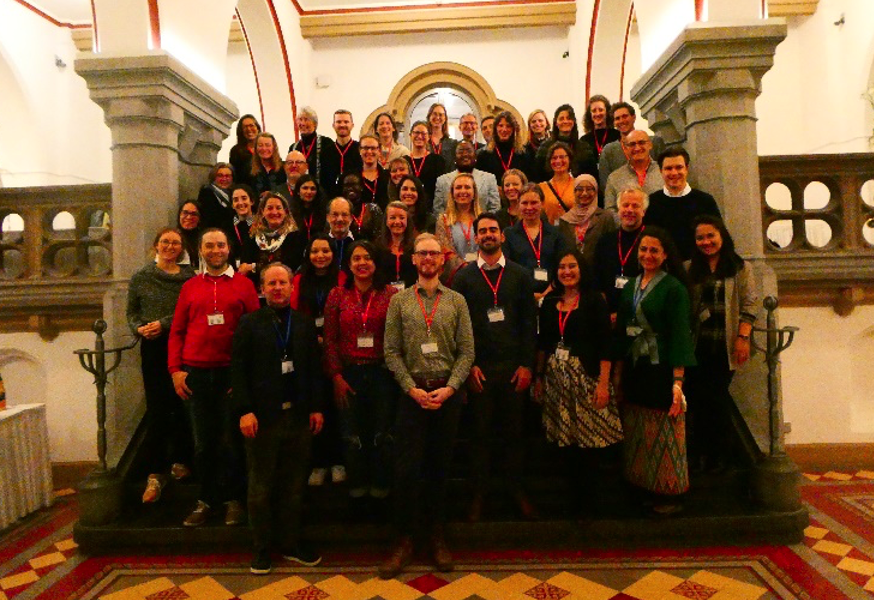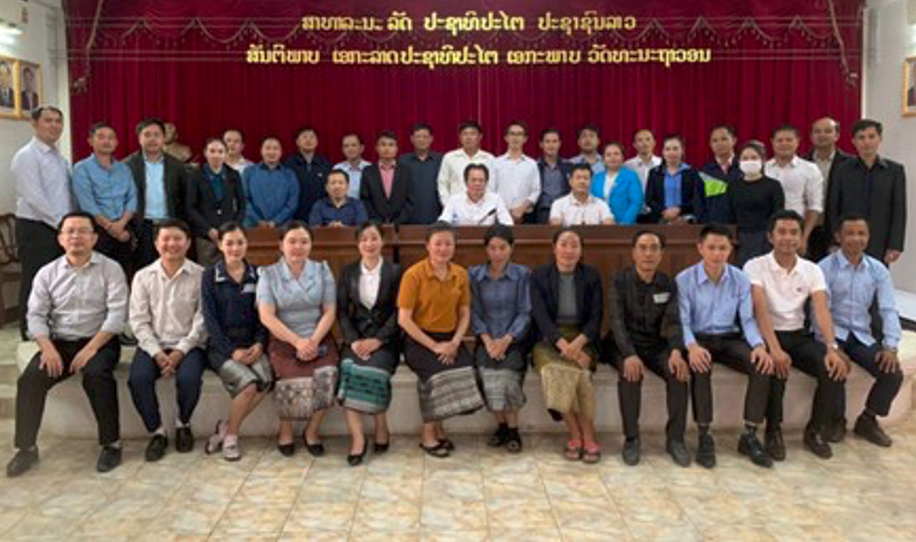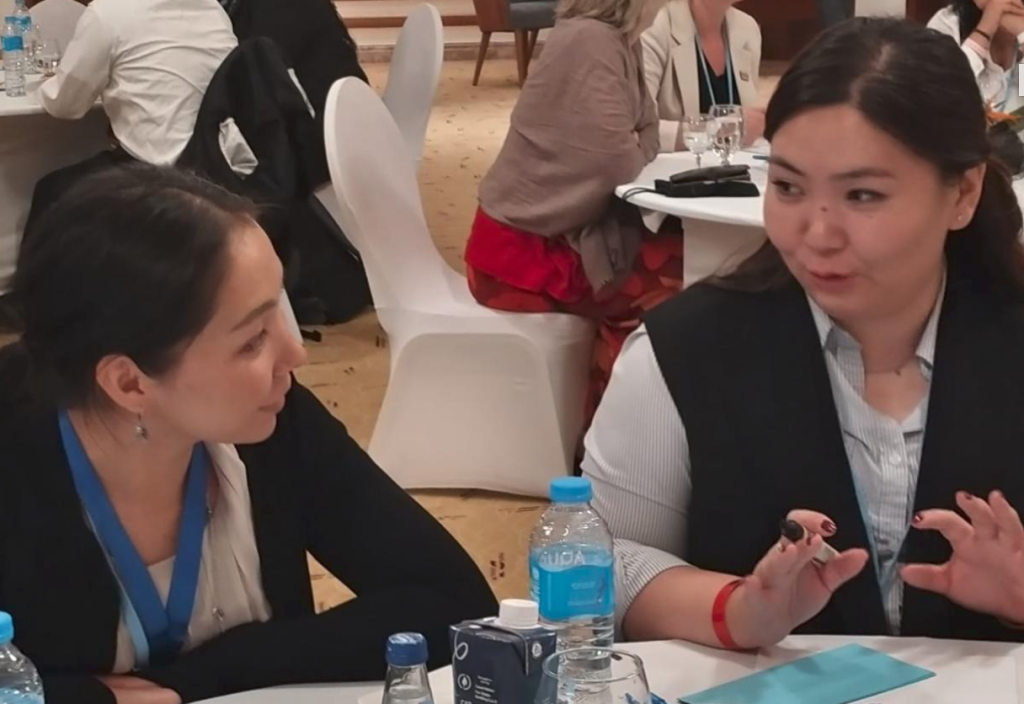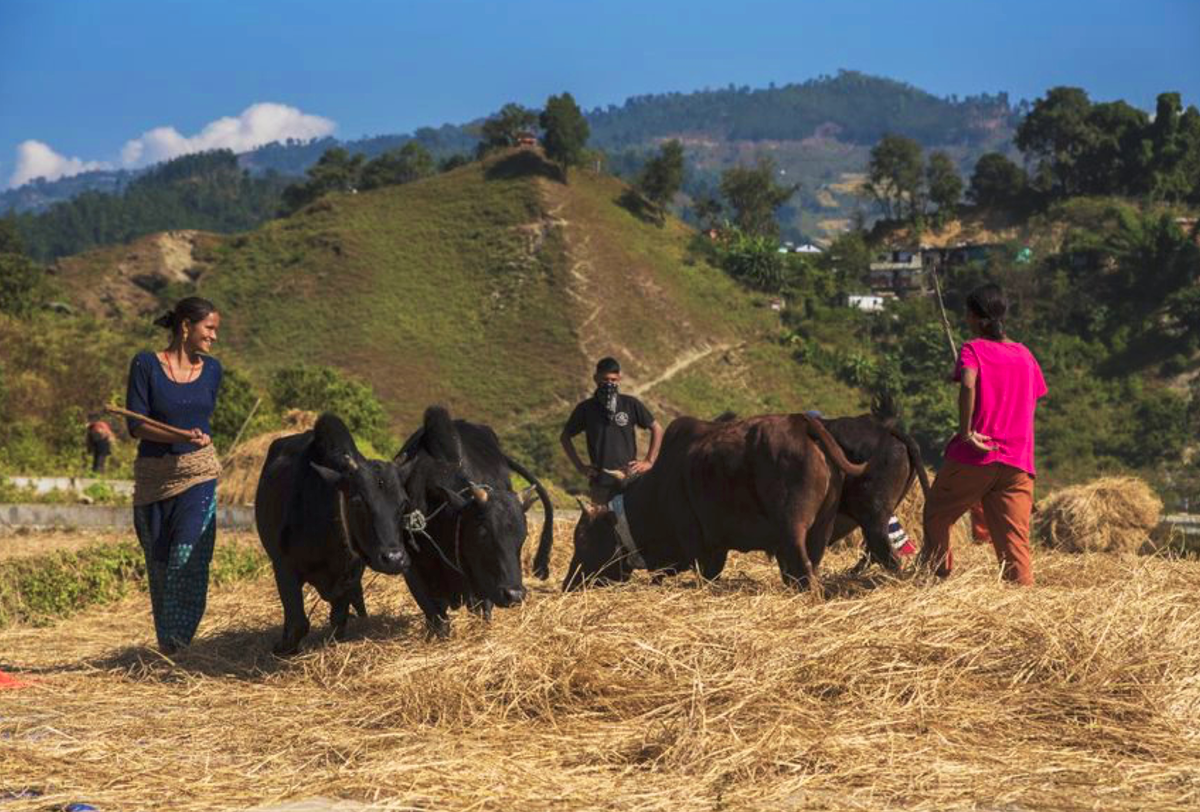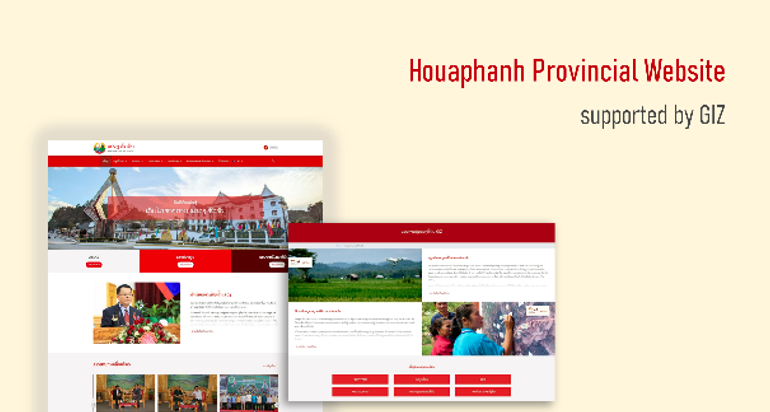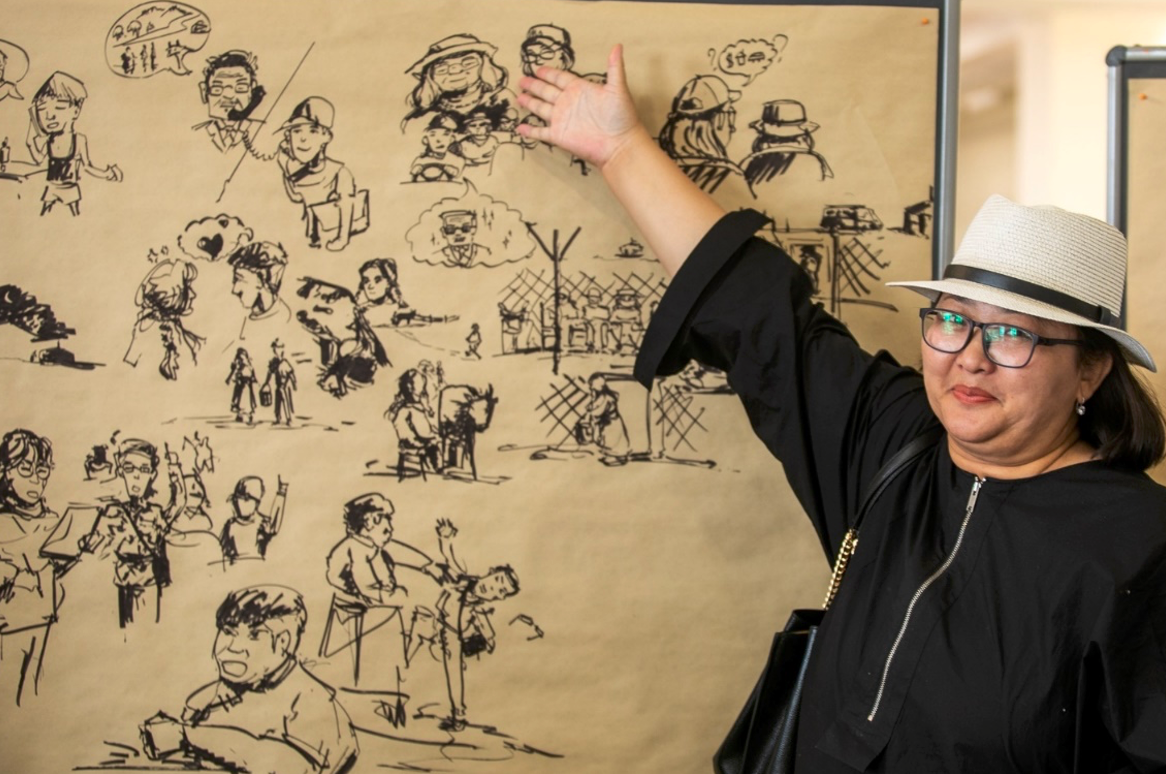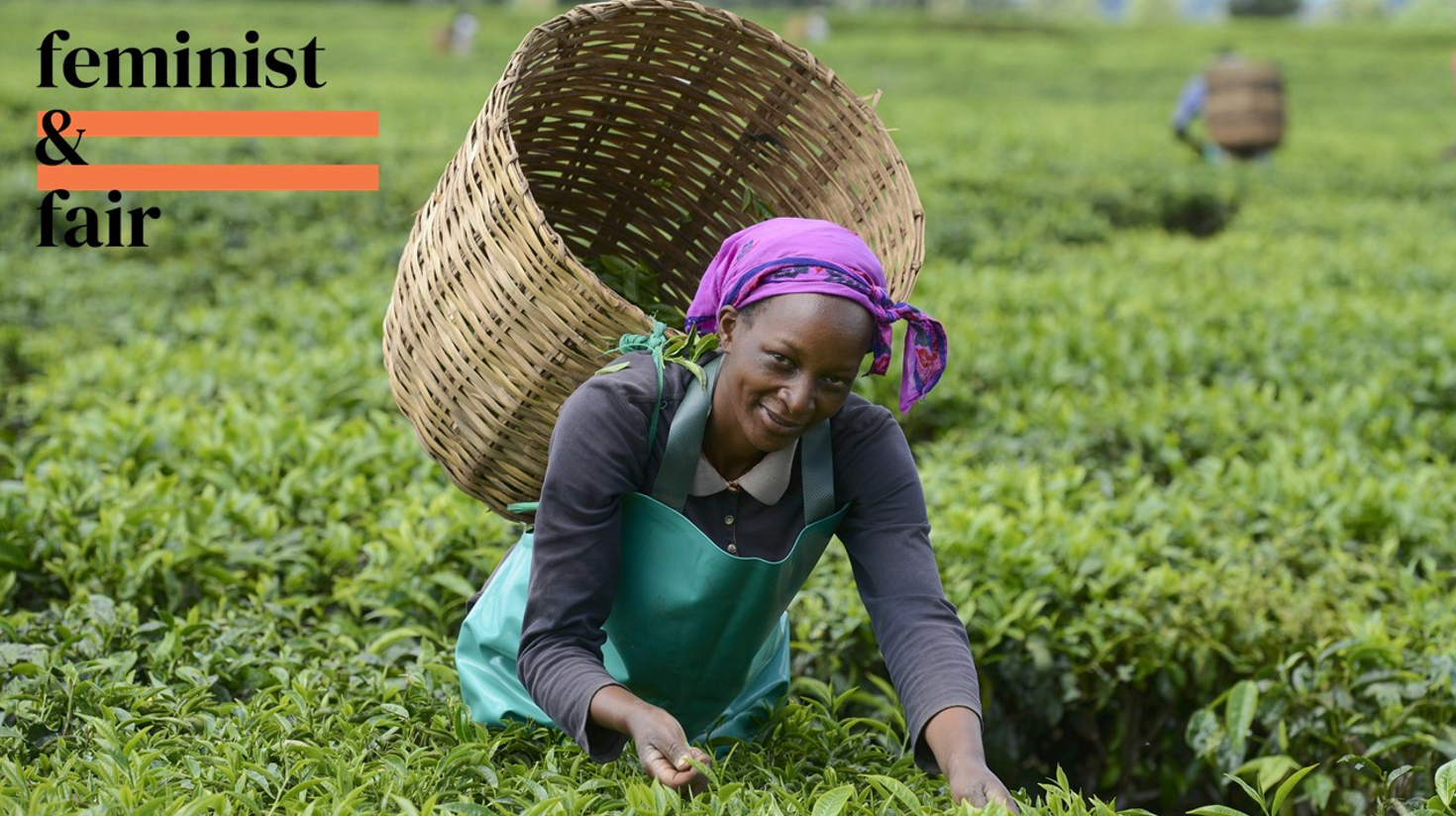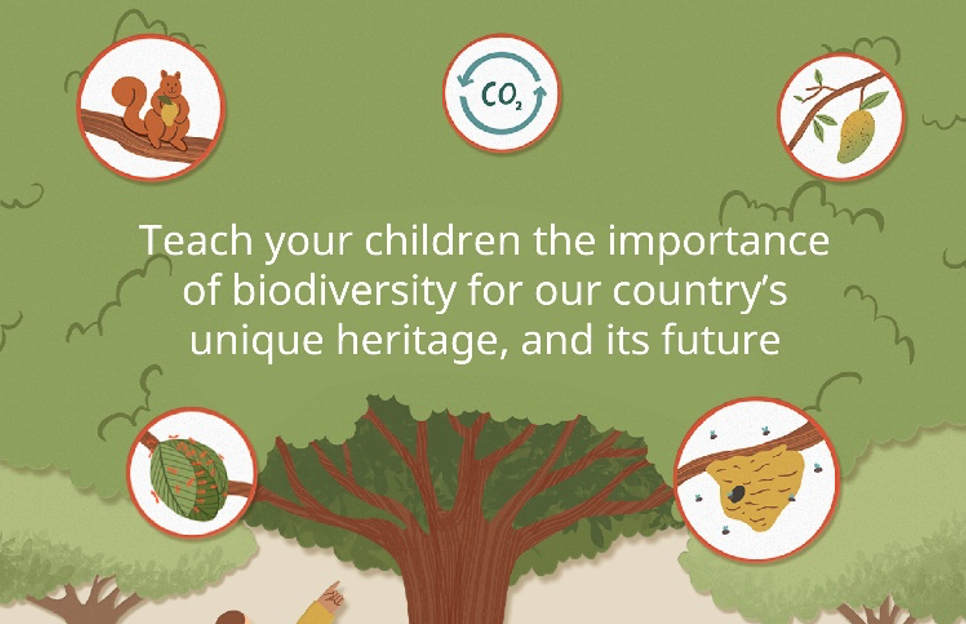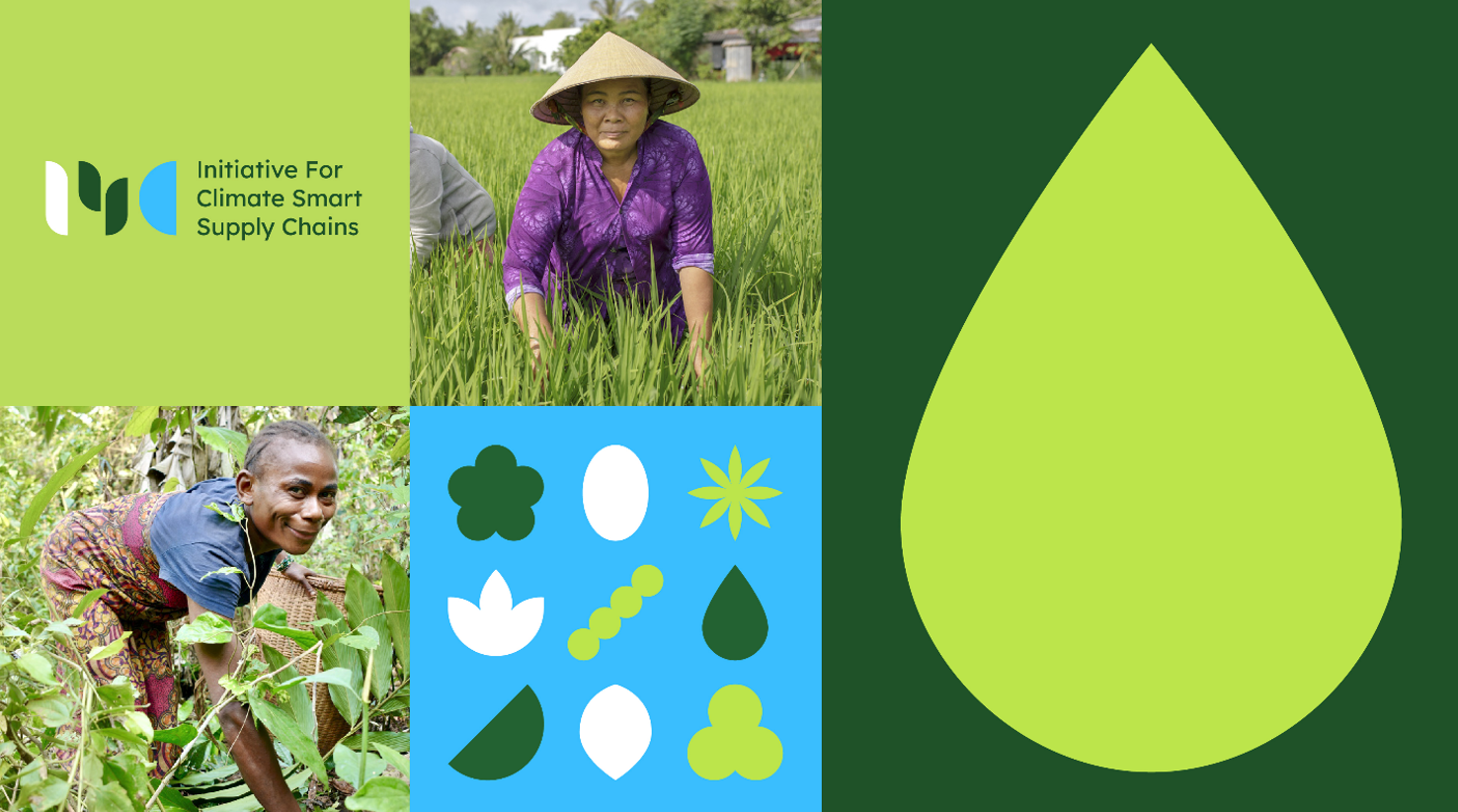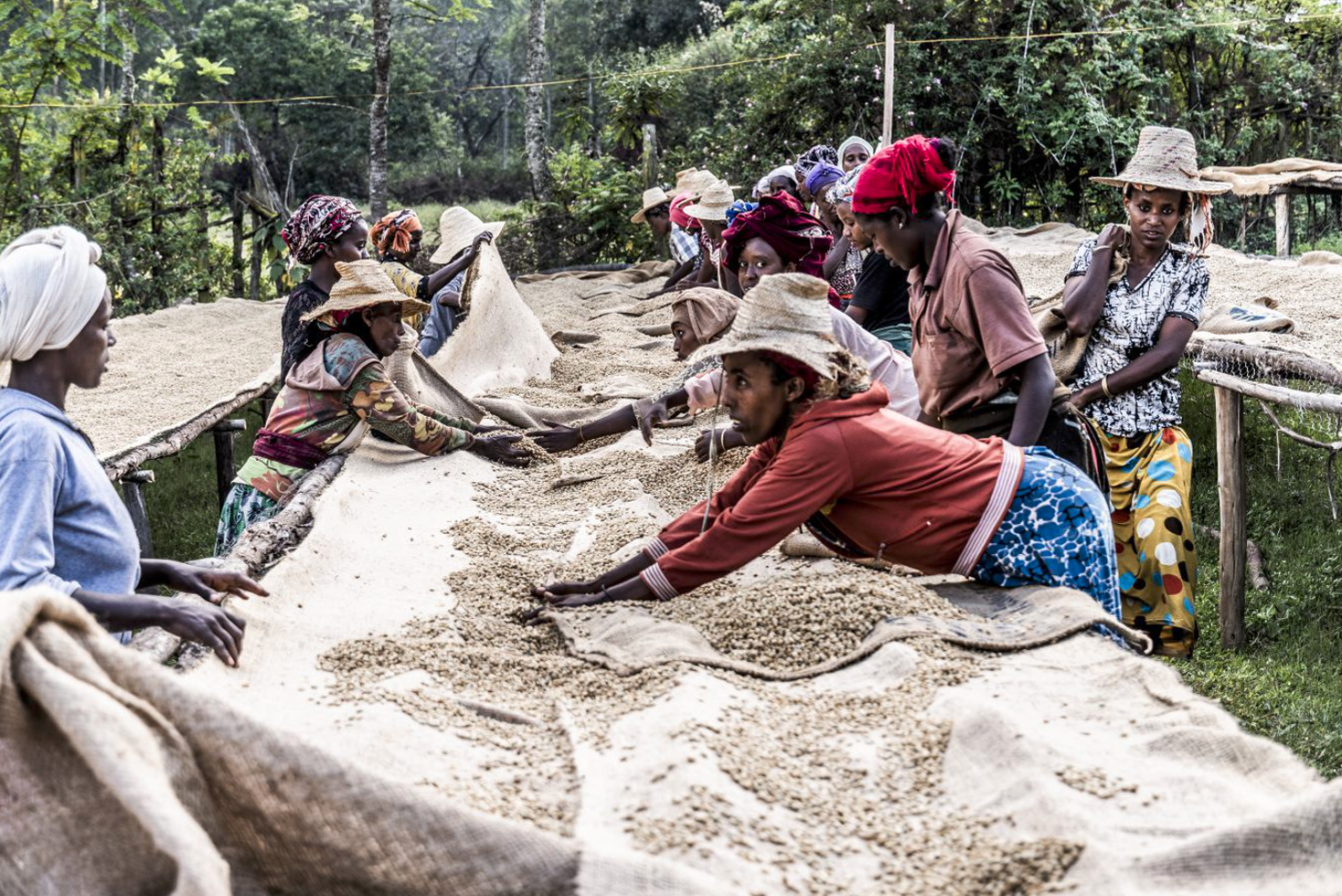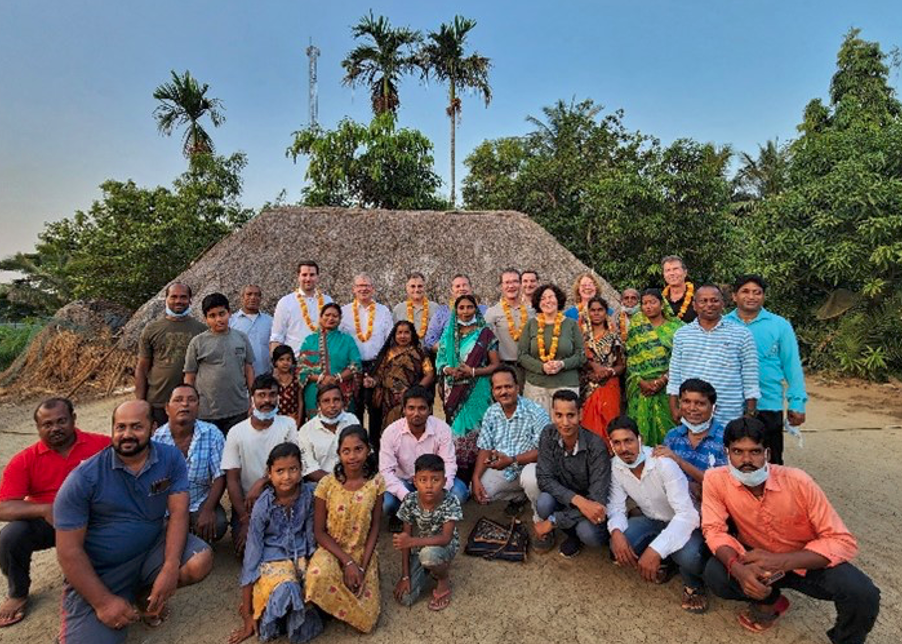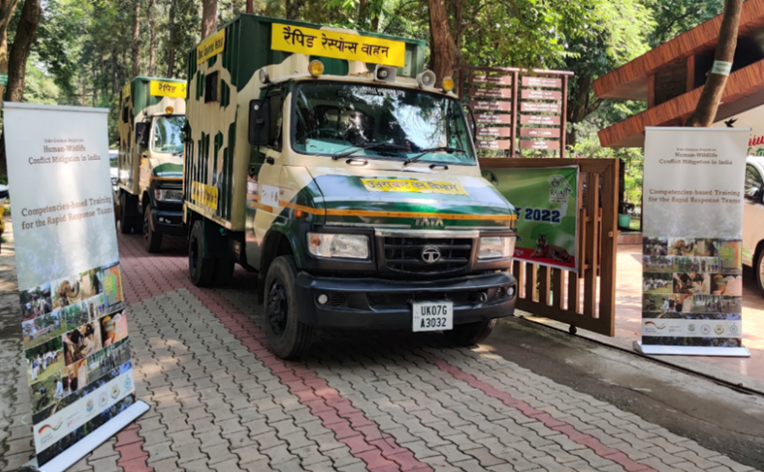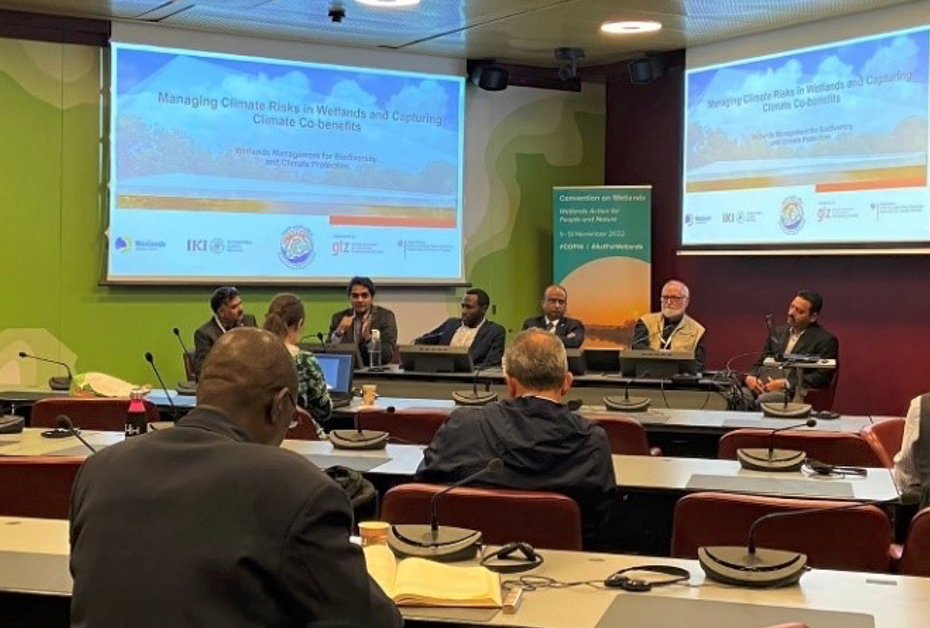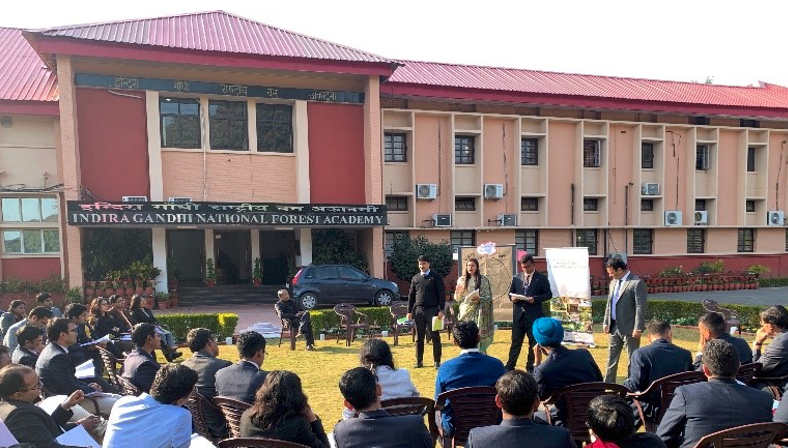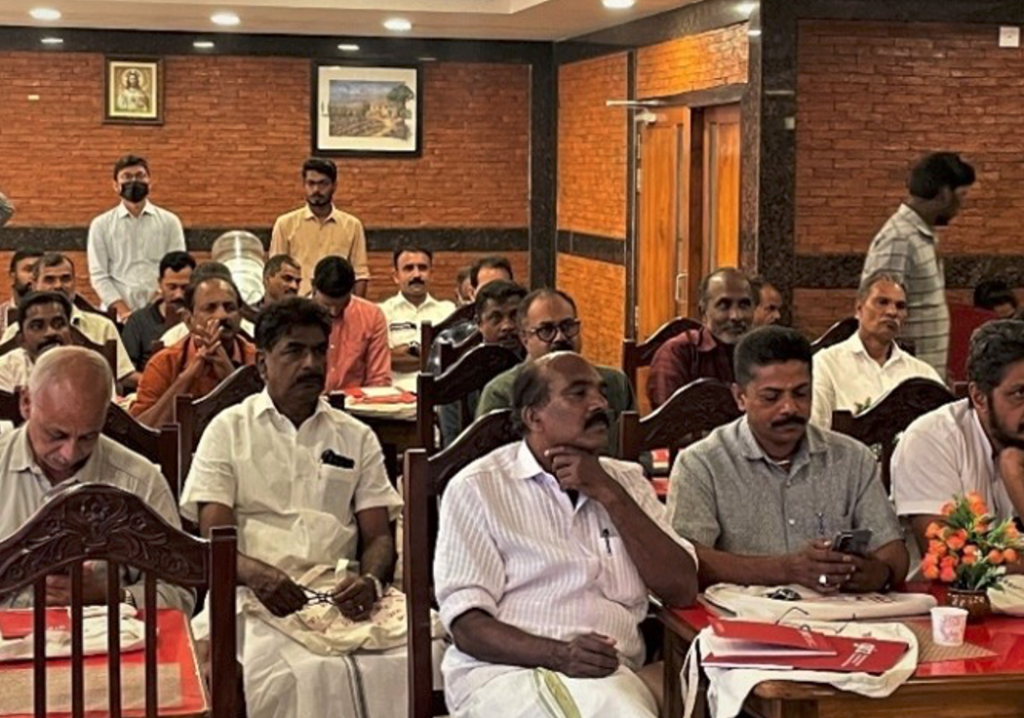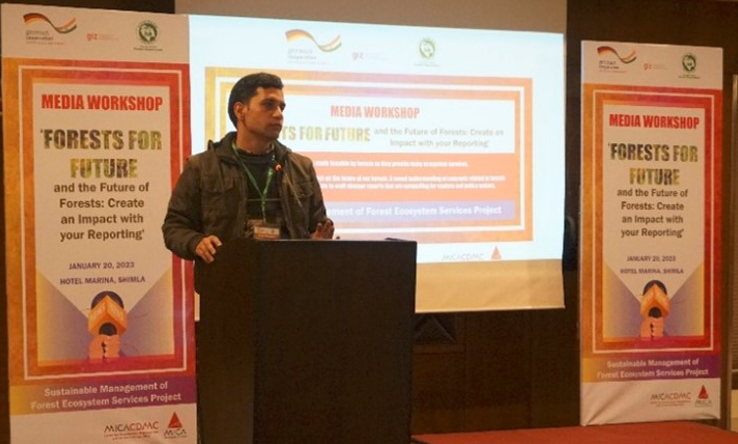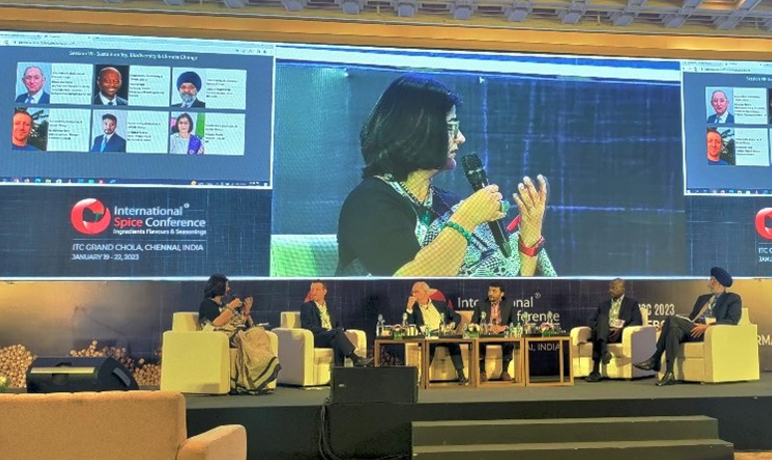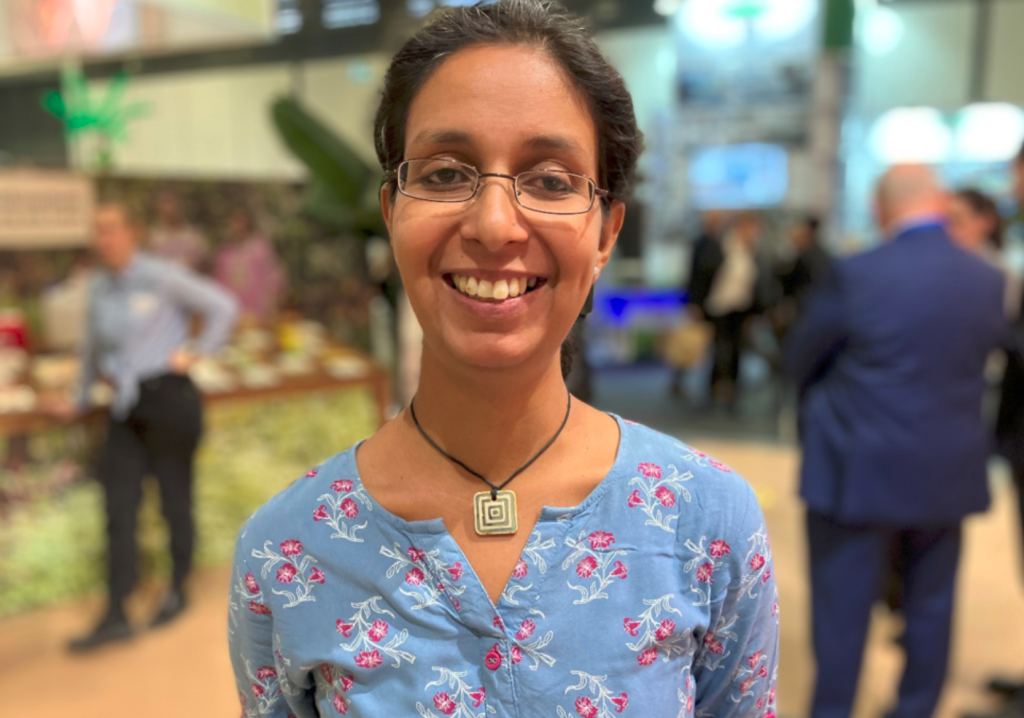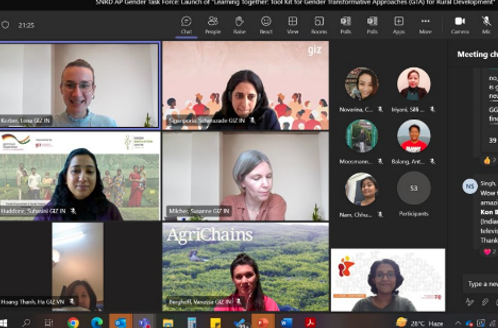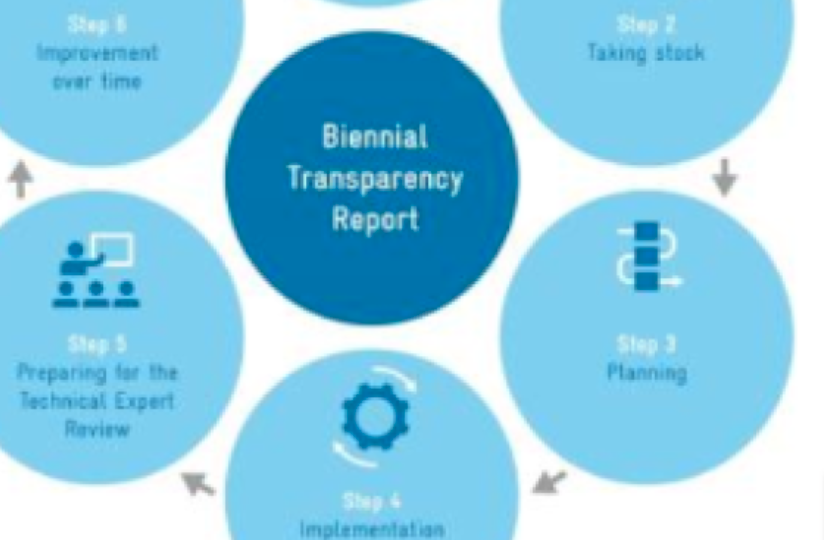
Issue 21, April 2023

Dear colleagues and members of the SNRD Asia and the Pacific,
Welcome to our first issue of the year! Judging from the number of news you sent to us for this issue, we have the impression many of you have had a busy and energetic first quarter of 2023 🙂
First thing’s first, we are very pleased to have received such an enthusiastic response to the call for proposal for the SNRD AP Learning and Innovation Fund 2023. Both Working Groups and Task Forces, new and extended, have submitted their applications and after thorough review, all are now approved. We are especially intrigued to see new topics being raised, such as carbon credits, digital footprint, agroecology and blue carbon, and to welcome a newly-established Gender Working Group. We look forward to seeing the activities and products our members are going to work on together this year.
On another note: You may have noticed that we are starting the new year with a new format of the newsletter itself by making it more concise and easier to go through, with less scrolling. As you can see, we are also moving the newsletter to our website. This way the readers get a more attractive interface experience and we can track how many people visit so that we can further improve and make reading most enjoyable and interesting for you.
The current newsletter issue features articles on several topics, including EbA, agricultural value chains, wildlife trade, and feminism; reports and announcement from different events, such as Partnership Meeting of the Partnership on Transparency in the Paris Agreement, International Spice Conference and Global Forum for Food and Agriculture; and publications on rural resilience, e-learning development, and wetlands management, for instance.
We thank everyone who has sent in their contributions and hope you will have an enjoyable read!
One last thing, this year GIZ is giving priority to the subject of health and well-being. So, we would like to remind our member not to forget to lean back, switch off and take some time to take care of your body and mind in order for us to stay as fresh as a daisy.
Warm regards and stay healthy,
Lisa, Donaya, Natcha, Khaekhai

Lisa Hunsinger

Donaya Siamwalla
(SNRD AP Network Manager and Public Relations Officer)

Natcha Pattanatananon
(SNRD AP Assistant)

Khaekhai Tanasansopin
(Office Manager)
SPOTLIGHT FROM SECRETARIAT
Here are a few words from our Task Force Leads:
Digital Transformation Task Force Lead
 Shriman Narayan Sai Raman — Urban and Regional Development Advisor
Shriman Narayan Sai Raman — Urban and Regional Development Advisor
Sustainable Urban Development of Smart Cities II (SUDSC II)
“The Task Force on Digital Transformation aims to collect existing digital tools used in data gathering to support data-based solutions and foster effective knowledge management horizontally and vertically, This further provides an opportunity to share digital transformation good case practices and innovations for more project use. It is envisaged that a collection of digital tools used to gather data for sustainable cooperation and implementation and the collection of best practice on data-driven solution for project members to be able to make better strategic decision will provide all member projects with a reliable source of knowledge at the regional level as well as at the HQ level. As part of this initiative, 4 Webinars with Working group / project level samples of digital innovation and transformation will be organized.”
Agroecological Transformation Task Force Lead
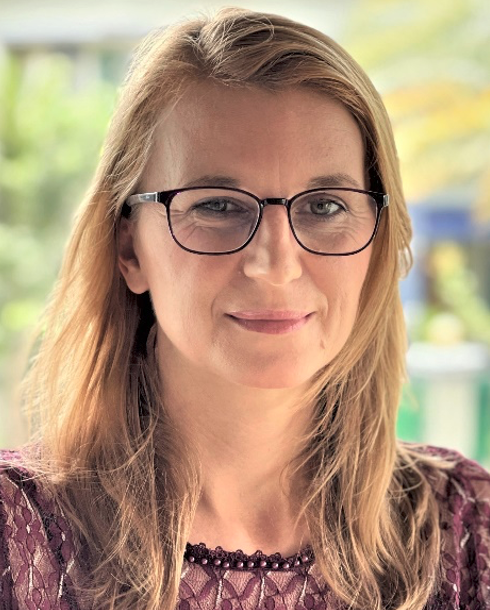
Susanne Bodach — CIM Integrated Expert at International Water Management Institute (IWMI)
Fund for Human Capacity Cooperation with Partners of International Agricultural Research (PIAF)
“Agroecology (AE) is a holistic approach to farming that emphasizes the use of sustainable and environmentally-friendly practices to promote biodiversity, increase food security, and improve the livelihoods of small-scale farmers. IWMI is a R4D organization with several research initiatives linked to AE. For the growing GIZ portfolio in AE, this Taskforce was established to foster cross-country and cross-project exchange of experience and lessons learnt– mainly between Asia and Africa. At the same time, it is envisaged to facilitate exchange with R4D organizations like IWMI to bridge the gap between research and implementation. We also plan to develop one knowledge product according to the TF member’s needs.”
Blue Carbon Task Force Lead
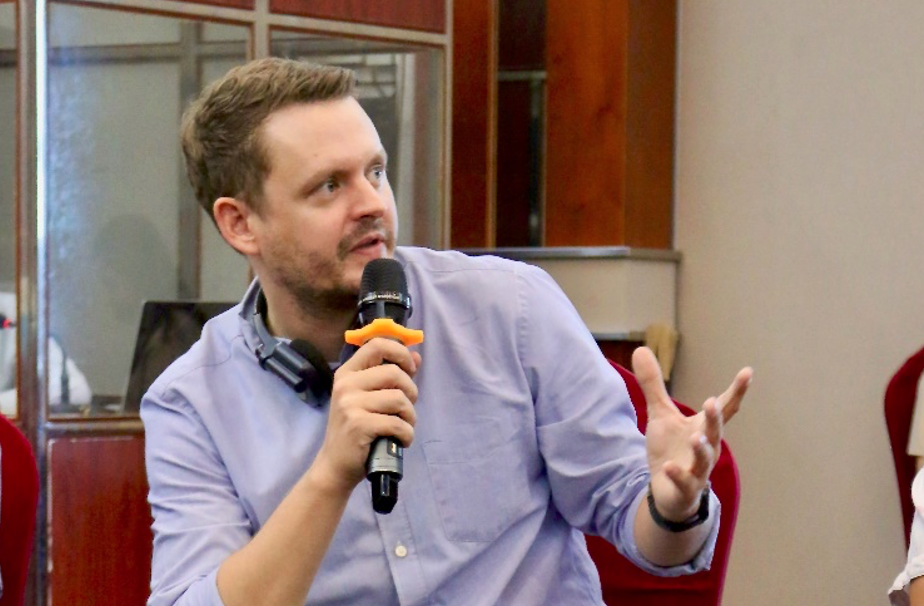
Ron Fluegel — Advisor
Strengthening Disaster Resilience and Risk Mitigation through Ecosystem-based Planning and Adaptation (E4DR)
“Blue carbon, which refers to the carbon stored in coastal and marine ecosystems, is becoming an increasingly hot topic not only for GIZ but also our commissioning parties and partners who are showing more and more interest in the matter. In order to generate a better understanding and to promote a mutual exchange, we want to bring this Taskforce to life and hope for fruitful dialogues and exchanges. Therefore, we will design some ideas and practices for internal knowledge management, inviting external Blue Carbon experts and hosting some events to discuss how the topic can be integrated into GIZ portfolio and how GIZ expertise can support our partners to be up to date on this increasingly relevant topic.”
SNRD x Data Lab: Masterclass on the Data Powered Positive Deviance (DPPD) Method

Development cooperation often still offers top-down solutions to partner countries and doesn’t focus enough on the potential of local knowledge and innovation. That’s why SNRD Asia and Pacific and SNRD Africa collaborated with the GIZ Data Lab to offer a Masterclass on the Data Powered Positive Deviance (DPPD) method in the context of climate change mitigation and adaptation.
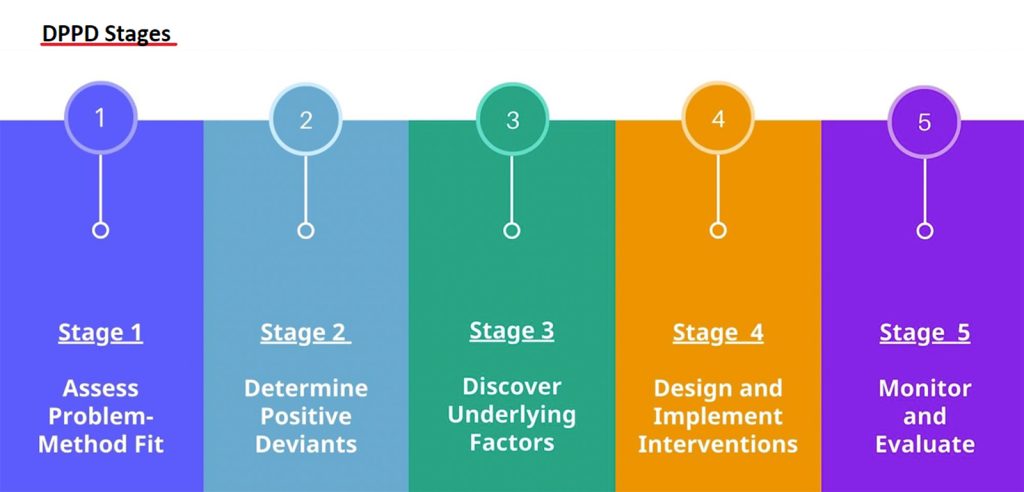
The DPPD method uses pre-existing, non-traditional data sources (e.g., satellite imagery, mobile data) to identify individuals or communities who, despite facing similar challenges and limitations, achieve better results than their peers (positive deviants).
14 SNRD teams successfully developed their own DPPD use cases, focusing on unique development challenges ranging from wetland restoration in India to climate-smart agriculture in Ghana. For everyone interested in learning more about DPPD, check out the masterclass liveblog and stay tuned for upcoming DPPD Atingi course. More information will follow soon!
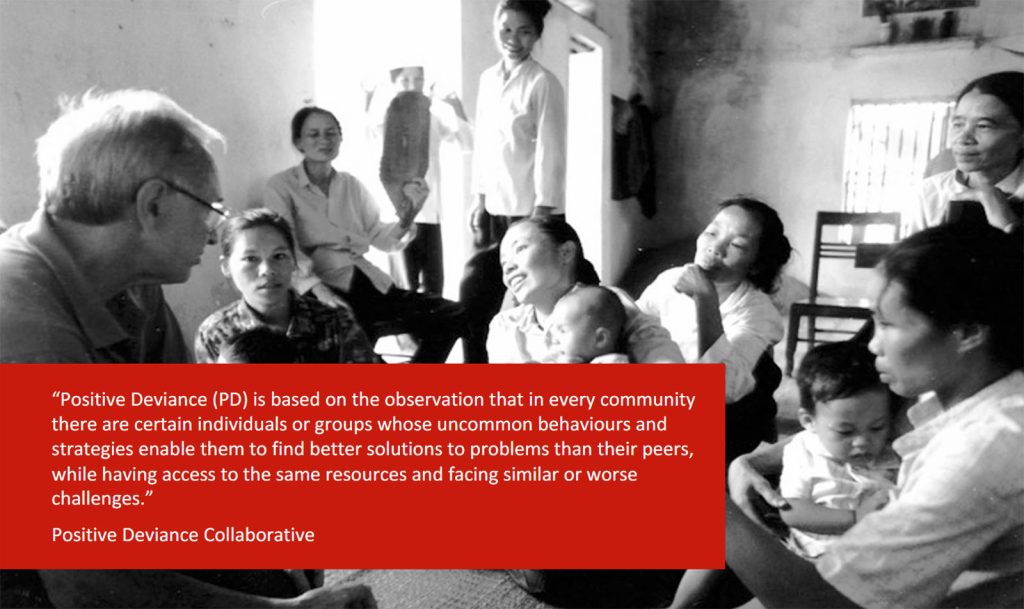
BIOH is on PANORAMA
The product of the BIOH – One-Health Analysis Framework Task Force, An Analysis Framework to enable biodiversity projects to take a One Health approach, has been published on the PANORAMA – Solutions for a Healthy Planet platform! Here is a glimpse of the feature on the website:
Summary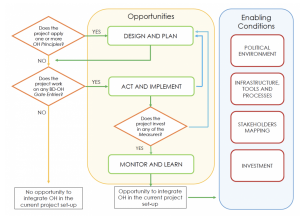
The Biodiversity Working Group from GIZ’s Sector Network of Rural Development and Natural Resources Asia-Pacific (SNRD-AP) commissioned a study to explore the biodiversity-health nexus in the region. Literature review and informant interviews allowed understanding the impact of biodiversity loss and ecosystem degradation on human and animal health and gave insight into the value of collaboration at the nexus. The leading discourse has neglected the environmental pillar of One Health (OH) for long, with little attention given to biodiversity in classic OH actions addressing emerging infectious diseases and antimicrobial resistance. The biodiversity-health nexus is essential for pandemic prevention. It is thus urgent to explore how One Health could be integrated into biodiversity and, vice versa, how biodiversity could be integrated into One Health to make pandemic prevention more effective. This study focuses on developing an innovative tool to guide better integration of One Health into biodiversity conservation.
Introducing H2O’s Tandem Partner
We are happy to announce that the Hills to Ocean Working Group have a new Tandem Partner: Sven Genschick. Let’s hear a few words from him.
 Sven Genschick — Planning Officer (FMB) & Advisor (G530)
Sven Genschick — Planning Officer (FMB) & Advisor (G530)
FMB Competence Center “Forests, Biodiversity, Agriculture” (KC 4D20) & Sector Project “Food and Nutrition Security” (G530)
“After studying geography, I did my doctorate at the Center for Development Research (ZEF, Uni Bonn) in a research project in the Mekong Delta (WISDOM Project) funded by the Federal Ministry of Education and Research (BMBF). From a social science perspective, I dealt intensively with Pangasius aquaculture at the time in order to explore the behavior of actors, mainly grow-out farmers, in dealing with water resources. Because as you surely know, in this particular context, behavioral patterns were / are not always sustainable and it was all the more exciting to learn about habits and other subjective and objective factors that influence such behavior. Then, after my PhD, it took me from the Mekong Delta to Malaysia, Penang. I worked there for two years as a post-doc at WorldFish (CGIAR); with project work in Cambodia and Bangladesh, among others. As part of my job at the time, new challenges arose in Africa. So, after two years in Penang, I was drawn to Zambia, from where I worked on different research projects on sustainable aquaculture in the broader context of food and nutrition security. It was not easy to leave Zambia, because we had great time there, but after several years abroad we decided to go back to Germany. And here I am still. Since 2019 I have been working with GIZ as an advisor to the BMZ on the topic of ‘Sustainable Fisheries and Aquaculture’ and since December 2022 I have taken on a part-time role (60%) as Planning Officer in the KC 4D20, where I am primarily responsible for the topic of aquaculture. In this context and beyond, I am also interested in topics related to coastal protection, Blue Economy, mangroves and sustainable aquatic food in general. In my role as a tandem partner, I look forward to constructive cooperation, exchange, and mutual learning. Thanks for welcoming me and see you soon! And who knows, maybe someday we’ll go fishing together.”
HIGHLIGHTS AND KNOWLEDGE SHARING — News from SNRD AP Working Groups and Task Forces and from SNRD AP Member Projects
The GIZ-implemented and IKI-funded Global Project Mainstreaming EbA is ending by the end of February 2023. We look back at almost eight years of exchange, peer-to-peer learning and joint growth on the topic of EbA.
The project RGIL Laos is conducting Community Legal Empowerment (CLE) activity in 15 districts in four target provinces in Laos to enhance the capacity of authorities in providing legal aid to community
The Task Force on Climate-Smart Agricultural Value Chains aimed at supporting projects to better integrate climate-sensitive approaches in their work on value chains. A number of products were designed: a compendium of tools, a database for climate-smart measures and an upgraded ValueLinks Training. We are happy to share the results!
Xayabouly and Houaphanh Province in Laos now have their own official provincial websites with the support from GIZ-LMDP project to promote tourism, sustainable development, and access to development tools from GIZ.
A love triangle, sleezy hustlers, dubious business opportunities, sex & crime, and quite some cashmere goats are involved in a weekly radio drama initiated by GIZ SPACES to raise awareness on environmental issues in Mongolia.
Feminist & Fair is an idea competition that supports business-led projects to dismantle systemic and normative inequalities in agricultural supply chains.
With joint efforts from government, international NGOs and national Civil Society Organisations, an informal cooperation network against illegal wildlife trade in Lao PDR has been established. As a result, a social media campaign against illegal wildlife trade targeting the peer groups of influencers and decision-makers was successfully designed with a co-creation approach.
With the ideas competition “Initiative 4 Climate Smart Supply Chains”, we are committed to sustainable change in agricultural supply chains and holding all actors involved accountable.
Coffee++ addresses Living Income/ Wage and the adverse effects of climate change by building more resilient communities in the coffee sector through regenerative agriculture and agroforestry approaches.
The ‘Parliamentary Committee for Environment, Nature Conservation, Nuclear Safety and Consumer Protection’ of the Government of Germany (Umweltausschuss) travelled to India for a delegation visit from 26th October – 5th November 2022. As part of their visit, the delegation, and the Consul General of Germany (Kolkata), visited Bhitarkanika Ramsar Site in Odisha. It is one of the pilotsites under the IKI-BMUV funded project ‘Wetlands Management for Biodiversity and Climate Protection’, which is being implemented with the Ministry of Environment, Forest and Climate Change (MoEFCC) and State Wetland Authority.
Shri Pushkar Singh Dhami, Chief Minister, Uttarakhand, in presence of Shri Subodh Uniyal, Forest Minister Uttarakhand, flagged off two Rapid Response Vehicles, provided to the Uttarakhand Forest department by GIZ-MoEFCC under the Indo-German Cooperation project on Human-Wildlife Conflict Mitigation, during the inaugural ceremony of Wildlife Week at Lachhiwala nature Park, Dehradun on Oct 1, 2022. These RRT vehicles will be used by the Rapid Response Teams of Uttarakhand Forest Department for effective Human-Wildlife Conflict Mitigation.
The International Climate Initiative (IKI) – BMUV project, ‘Wetlands Management for Biodiversity and Climate Protection’, rganized a side event titled ‘Capturing Climate Co-benefits of Wetlands’, at Ramsar COP14 on 9th November 2022 in collaboration with the Ministry of Environment, Forest and Climate, and Wetlands International South Asia. The project developed a methodology to assess and manage site-level climate risks in wetlands.
A three-day ‘Leadership Training Module’ was organised jointly by IGNFA, Human Wildlife Conflict Mitigation Project – GIZ, and Dale Carnegie, from January 4-6th, 2023 at the IGNFA campus for the 67 Indian Forest Service Probationary Officers of the 2021-23 batch.
DPP GIZ-AVT McCormick project organized two trainings on FSA certification for Cardamom farmers as well as trainings on Biodiversity-Friendly Organic Cultivation of Spices for Women Farmers in Kerala. These trainings were organized at different locations with project farmers at Rajjakkad and Thekkady in the Idukki district.
A media workshop on how to increase quality reportage in Indian media about topics related to forest conservation was jointly convened by the Himachal Pradesh Forest Department (HPFD) and the Sustainable Management of Forest Ecosystem Services (FES) Project. The workshop was designed and delivered by the Centre for Development Management and Communication at MICA (CDMC-MICA). Representatives from different media houses in Himachal such as NDTV, DD News, ANI News, Divya Himachal, Punjab Kesari, News 18 and Channel 9 participated in the workshop.
International Spice Conference 2023 (ISC 2023) was held on January 19-22nd, 2023, in ITC Grand Chola, Chennai. The conference was attended by 850 participants and visitors from 50 countries including 60 exhibitors and 50 speakers. The theme for the 4-day conference was ‘Reboot N’ Rebound’ – Beyond the new normal. GIZ – DPP Spices Project was Biodiversity Partner for the conference and participated in the Panel Discussion for Biodiversity, Climate Change and Sustainability.
EVENTS, TRAININGS & WEBINARS
Upcoming Events
Asia Regional Group in 2023
The workshop of the Asia Regional Group in 2023 will take place in South Korea on September 11-13, 2023 (Tbc). Potential topics include transition to the Enhanced Transparency Framework (ETF) and preparation of Biennial Transparency Reports (BTR), NDC tracking, and adaptation reporting.
11-13 September 2023 │ South Korea
Bilateral activities via the Climate Helpdesk in the Asian region
PATPA is supporting the following countries with short-term and targeted support in 2022-2023:
- Laos PDR: Introduction to the reporting requirements under the ETF and guidance of how to set up a roadmap for first BTR,
- Viet Nam: Stocktaking of the national and sectoral MRV/Transparency system of Vietnam
Completed Events
18 – 21 January 2023 │ Berlin Trade Fair
28 February 2023 │ Dehradun, India
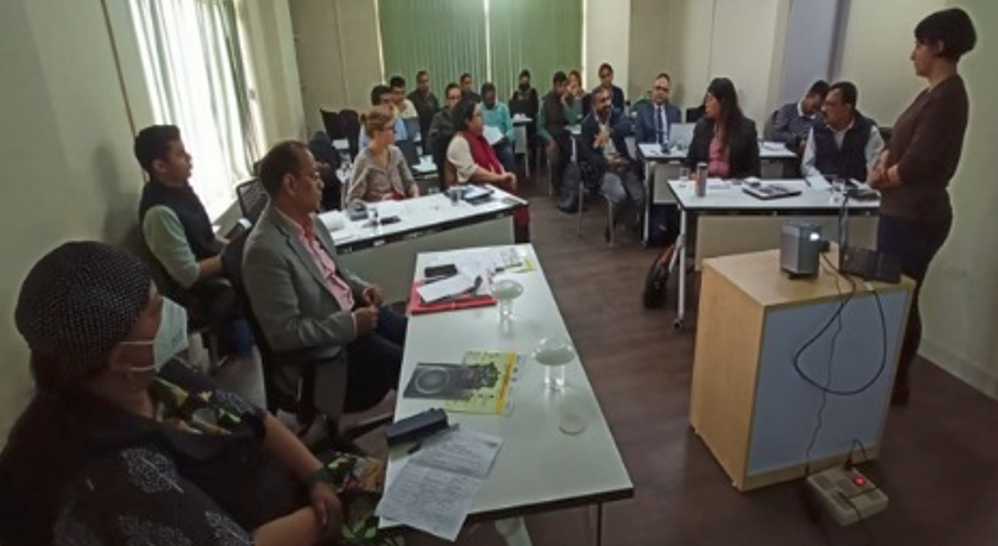
Discussion on Integrated Wetland Management Plan
7 February 2023 │ Guwahati, Assam
DOCUMENTS & PUBLICATIONS
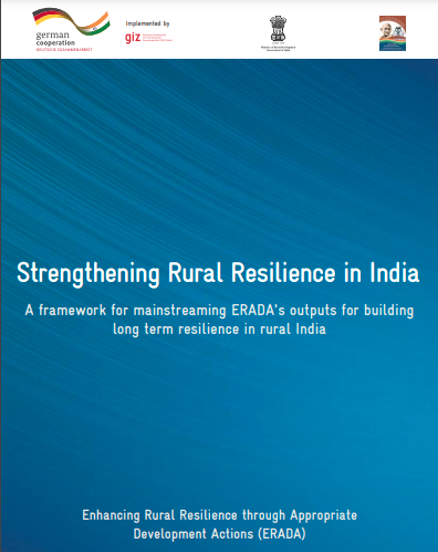
Strengthening rural resilience in India
Enhancing Rural Resilience through Appropriate Development Actions (ERADA) is a corona response project commissioned by the BMZ and implemented in cooperation with the Indian Ministry of Rural Development. ERADA works on strengthening sustainable livelihoods and enhancing the living incomes of vulnerable households in India’s high migrant contributing states.
This publication looks at the evolution of the term ‘resilience’, its various definitions, and further explains its relevance in today’s context of the pandemic, climate change and other shocks. Though developed in the Indian context, it can be insightful for development practioners, researchers and policy makers working on resilience building, social protection and livelihoods.
Key buzzwords
#rural #resilience #india #greenrecovery #socialprotection #vulnerability
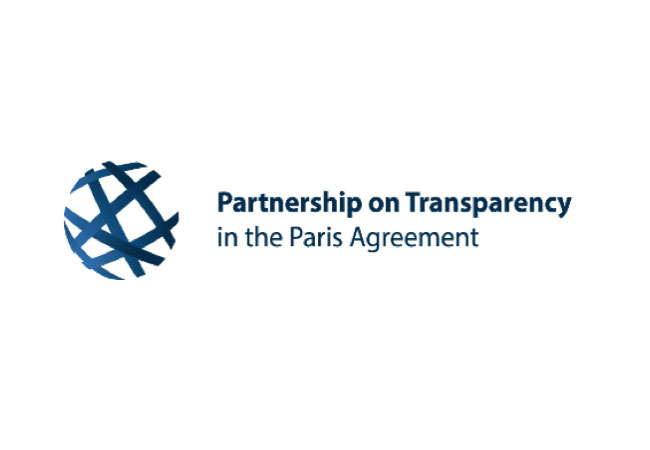
National Benefits of Climate Reporting
In 2023 several publications will be updated or published, including the updated paper on National Benefits of Climate Reporting (first published in 2018), a guidance document on NDC Progress Indicators, and the update on the Guidance for policy makers on NDCs and the ETF (first published in 2018).
Stay tuned and check: PATPA Knowledge Products
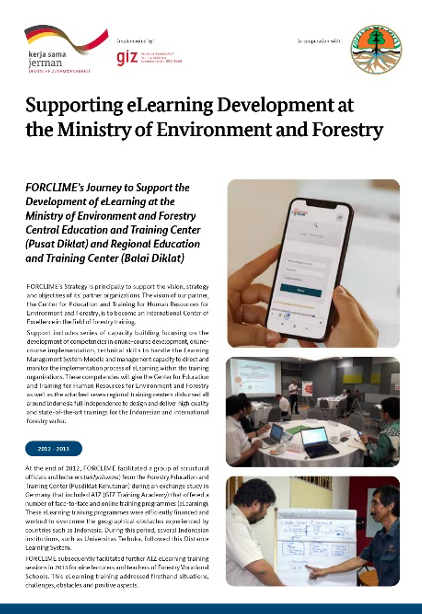
Factsheet: Supporting eLearning Development at the Indonesian Ministry of Environment and Forestry
This factsheet examines the development of eLearning at the Indonesian Ministry of Environment and Forestry, and Forests and Climate Change Programme’s contribution to its development. The programme has provided crucial assistance through a series of capacity-building initiatives aimed at enhancing competencies in online-course development and implementation. By equipping the education and training center within the ministry with these competencies, the center will be able to design and deliver high-quality and state-of-art trainings for the Indonesian and international forestry sector.
Key buzzwords
eLearning, Indonesia, forestry training
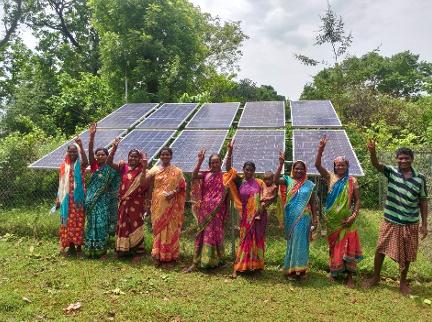
Financing Opportunities in Production Hubs (and beyond) which Impart Climate Adaptation in the Agriculture Value Chain
The document highlights nine technologies which have been eld tested by Sustain Plus Energy Foundation (SPEF). The working of these nine technologies and experience of the users bringing out the economic value has been discussed at events where Financial institutions were present. ¬e Deutsche Gesellschaft für Internationale Zusammenarbeit (GIZ) GmbH and Sa-Dhan Association are collaborating with CInI and SPEF to enhance access to capital for the various production hubs/ technologies deployed at the production hubs to facilitate scaling up. ¬is is being done under the Indo-German development cooperation project ‘Climate Adaptation and Finance in Rural India (CAFRI NABARD)’ which GIZ implements on behalf of the Federal Ministry for Economic Cooperation and Development (BMZ). Mechanisms like line of credit/ other forms of re- financing Financial Institutions to support Financial Institutions (FIs) financing these technologies are also being worked upon.
Key buzzwords
Climate Adaptation, Consumer Financing, Climate resilient Solutions scale up
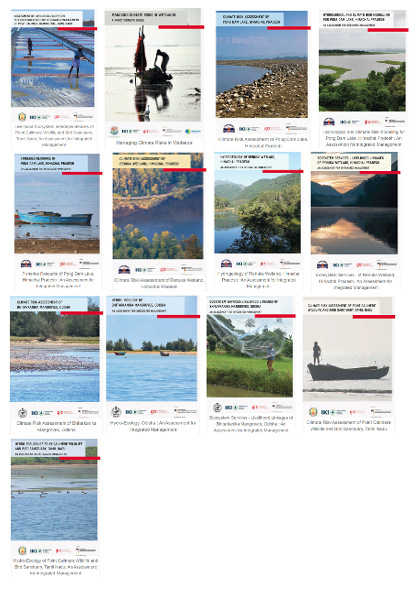
Wetlands Management for Biodiversity and Climate Protection Publications
Wetlands are not only quite vulnerable to climate change, but they also offer solutions to address the impacts. Wetlands act as carbon sinks and physical buffers to cyclones, and due to their water-holding capacity, they serve as natural infrastructures to combat drought and act as flood buffers. Thus, addressing the impact of climate change in wetland management planning is crucial. The ‘Wetlands Management for Biodiversity and Climate Protection’ has developed a handbook titled ‘Managing Climate Risks in Wetlands – A Practitioner’s Guide’. The publication provides practical guidance for integrating climate change risks and adaptation options in managing wetlands. It was pilot tested in four Indian Ramsar wetlands, and lessons learnt have been provided as case studies. The project also conducted site-specific assessments on hydrology, ecosystem services and livelihood dependencies to guide the preparation of integrated management plans. The publications guide practitioners and wetlands managers in carrying out baseline assessments for wetlands management.
Key buzzwords
Wetland management, climate risk assessment, Hydro-Ecology
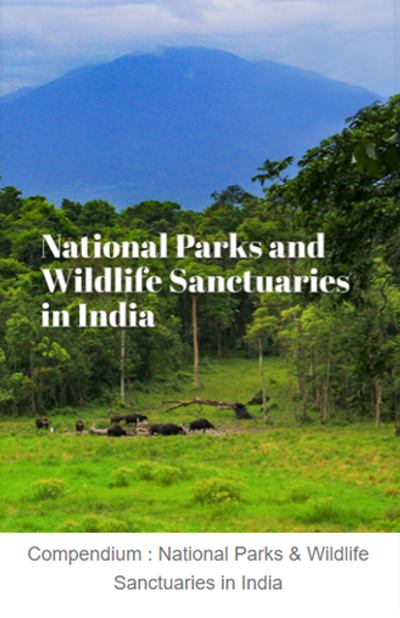
Compendium – National Parks & Wildlife Sanctuaries in India, Human Wildlife Conflict Mitigation Project
The Compendium of ‘National Parks & Wildlife Sanctuaries in India’ addresses the interests of nature enthusiasts as well as conservation professionals on receiving information on all national parks and wildlife sanctuaries in India in one place. This first edition of the compendium is a reservoir of information on 103 national parks and 563 wildlife sanctuaries, presented State/UT wise in alphabetical order. The compendium provides a range of information on each protected area, such as location, key habitat and species, time of the year to visit, and places to stay. Further information can be explored via links and QR codes provided with each protected area.
Key buzzwords
Protected Areas, National Parks, Wildlife Sanctuaries
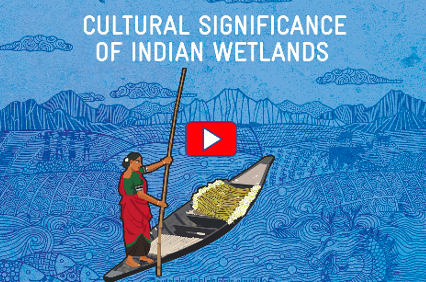
Video – Cultural Significance of Indian Wetlands | Wetlands Management for Biodiversity and Climate Protection
In India, wetlands are revered in various ways, making them an integral part of culture and divinity. Wetlands are the ‘Amrit Dharohar’ of the country. As the world faces unprecedented changes in climatic conditions and growing demands for resources, we must take lessons from our rich history, traditional values and cultural heritage to continue our co-existence with wetlands and rich biodiversity it supports. The Mission LiFE, launched by the Hon’ble Indian PM Shri Narendra Modi, also builds upon India’s environment-friendly culture and traditional practices. This short film, screened at the ‘75 at 75’ side event at Ramsar CoP14, takes a quick peek at the significance of Indian wetlands on local art, architecture, music, cuisine, craftwork and livelihoods documented through inscriptions, customs and rituals.
Key buzzwords
wetlands, cultural significance, biodiversity
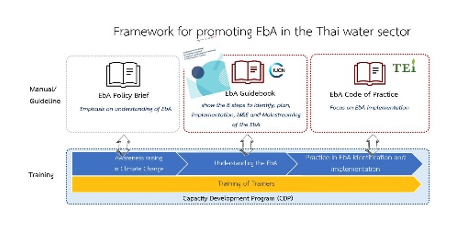
Guidebook for the Design and Implementation of Ecosystem-based Adaptation Measure in River Basins in Thailand
Following a series of consultations and trainings with national stakeholders in 2022, Thailand’s Office of National Water Resources, in collaboration with IUCN and GIZ, published The Guidebook for the Design and Implementation of Ecosystem-based Adaptation Measure in River Basins in Thailand. The guidebook is intended to provide a framework for formulating, putting into practice, and mainstreaming ecosystem-based adaptation (EbA) strategies in river basins all across Thailand. The guidebook is also a part of the framework for promoting EBA implementation in the water sector, on which GIZ and ONWR have collaborated throughout the course of the TGCP water project.
The guidebook is divided into two parts. Part 1 of the Guidebook provides a background of the development of the concept of Nature-Based Solutions and how it links to EbA. Part 2 provides a step-wise flexible framework to guide practitioners for designing, implementing and monitoring effective EbA measures to address climate impacts in each of the 22 river basins in Thailand.
Key buzzwords
#EbA #EbAGuidebook
Other Newsletters
FORCLIME Newsletter – This monthly newsletter is a medium for sharing with partners and wider stakeholders about our Forests and Climate Change Programme (FORCLIME) activities in Indonesia.
INA Newsletter – Read news from the Initiative for Sustainable Agricultural Supply Chains (INA), an association of players from within the private sector, civil society, and politics.
GIZ International Forestry Policy Newsletter – Subscribe now to get news and updates on GIZ International Forest Policy. If you would like to receive the GIZ International Forest Policy Newsletter, please send a message to forests@giz.de
APAN Newsletter, January – March 2023 Issue – Be updated on the latest adaptation news and stories from Asia Pacific Adaptation Network (APAN), a knowledge platform to equip adaptation practitioners in the region with the information, knowledge, and tools to design, implement and monitor climate change adaptation measures, foster access to technologies and finance, and build capacity for integrating climate change adaptation into national development policies, strategies and plans.
NEXUS Gains Newsletter, March 2023 – Read news from the CGIAR Initiative on NEXUS Gains, which works at the critical intersection of food, energy, and water security while preserving the ecosystems underlying food systems in selected transboundary river basins.
IIED Newsletters – International Institute for Environment and Development is an independent research organisation that delivers positive change on a global scale. They regularly publish a range of email newsletters containing updates on our latest research and activities, including new publications, on a variety of subjects.
IUCN Newsletters – The International Union for Conservation of Nature is a membership Union uniquely composed of both government and civil society organisations. It is the global authority on the status of the natural world and the measures needed to safeguard it.
PEDRR Newsletter – The weekly PEDRR news alert informs subscribers on ecosystem-based risk reduction and climate change adaptation. Sections include special reports upcoming events, job vacancies, featured publications and news articles.
Wetlands International Newsletter – Wetlands International is a global not-for-profit organisation dedicated to the conservation and restoration of wetlands. Our vision is a world where wetlands are treasured and nurtured for their beauty, the life they support and the resources they provide.
Useful Links and Platforms
AdaptationCommunity.net – The Global Programme Human Mobility in the Context of Climate Change (HMCCC) have launched a global website, a subpage on Climate Change and Migration under the AdaptationCommunity.net. Please click the link for an introduction to the topic of climate change-induced human mobility, publications, and other resources. The global programme operates in the Pacific Islands, the Philippines and the Caribbean, and is supported by a team in Bonn.
GIZ Philippines – Get updated on GIZ Philippines and Pacific
GIZ Thailand – Learn about GIZ Thailand activities and other updates
Sector Network TUEWAS – Sector Network Transport, Environment, Energy, and Water in Asia. Click here to subscribe to TUEWAS Newsletter!
SNRD Africa – Stay informed what is happening with our sister network
Warta Keberlanjutan – A communication platform to share SASCI (Sustainable Agricultural Supply Chains in Indonesia) and SASCI+ (Sustainability and Value Added in Agricultural Supply Chains in Indonesia) projects’ updates to the partners and stakeholders. Warta Keberlanjutan covers updated both projects’ activities and progress on a quarterly basis, and six editions have been produced since May 2021. The newsletter is available and shared in printed and pdf versions to strategic project partners and relevant stakeholders.
Published by:
SNRD Asia and the Pacific Secretariat
Deutsche Gesellschaft für
Internationale Zusammenarbeit (GIZ) GmbH
Registered offices
Bonn and Eschborn, Germany
193/63 Lake Rajada Office Complex 16th Fl.
New Rachadapisek-Rama 4 Road,
Klong Toey, Bangkok, 10110 Thailand
E snrd-asia@giz.de
I www.snrd-asia.org
Bangkok 2022
Unsubscribe:
Send us an email to snrd-asia@giz.de to unsubscribe.
Editor:
SNRD Asia and the Pacific Secretariat, Bangkok
Design:
Sector Network Coordination Unit, Eschborn
SNRD Asia and the Pacific Secretariat, Bangkok
Photo credits/sources:
As shown under each pictures
URL links:
Responsibility for the content of external websites linked in this publication
always lies with their respective publishers.
GIZ expressly dissociates itself from such content.
GIZ is responsible for the content of this publication.

